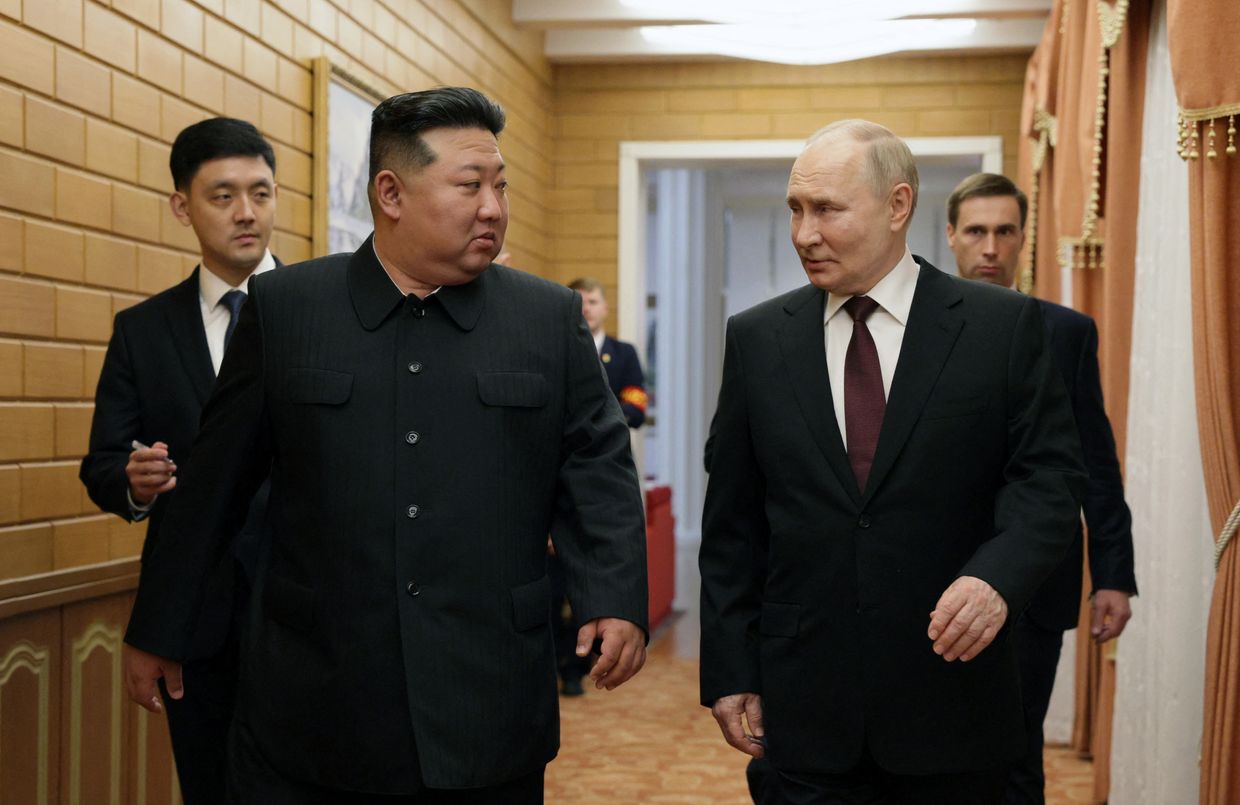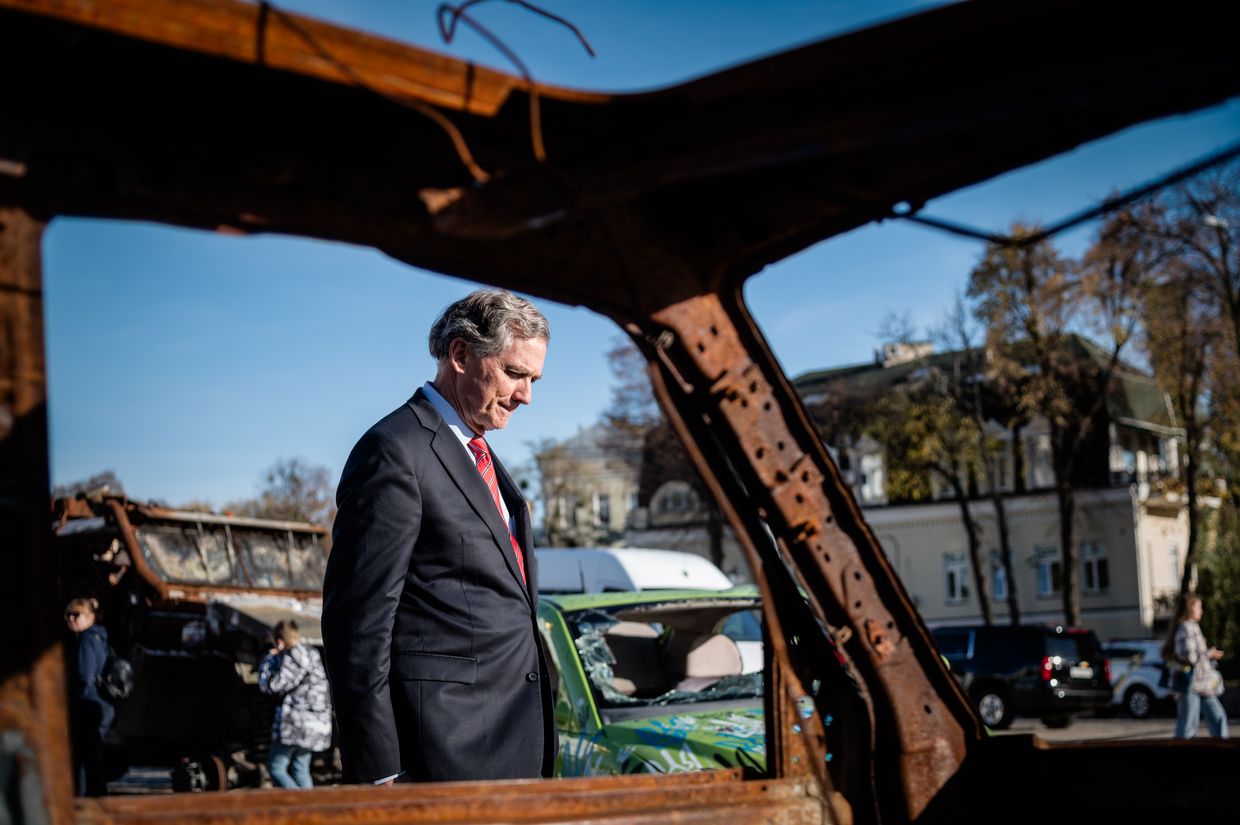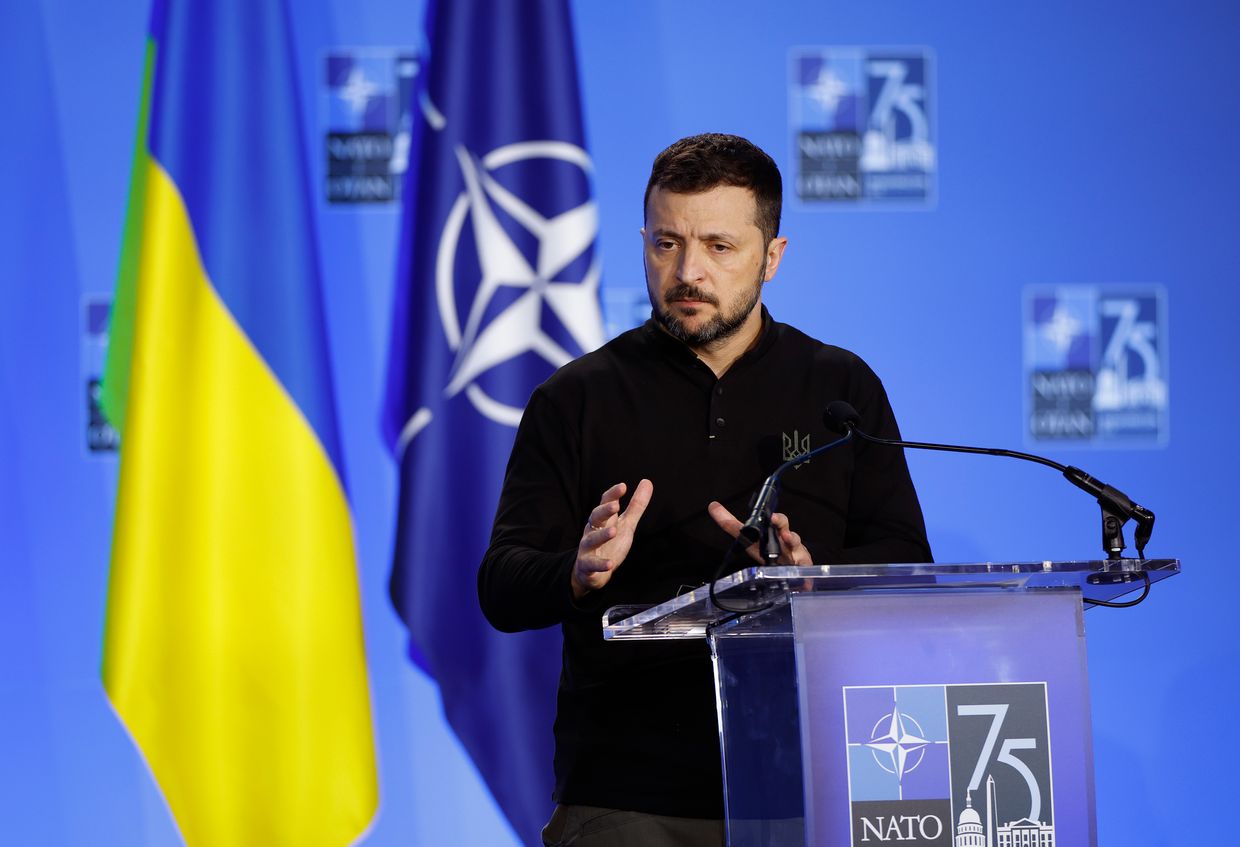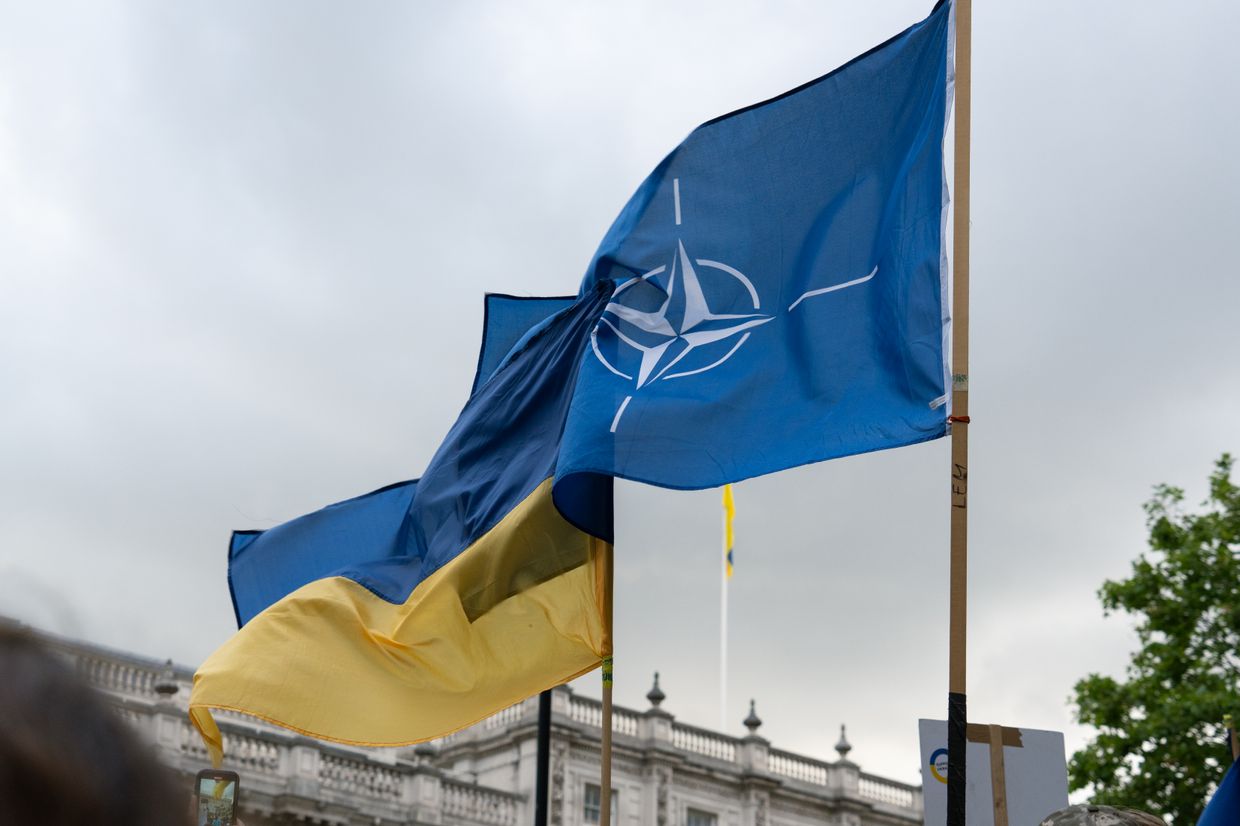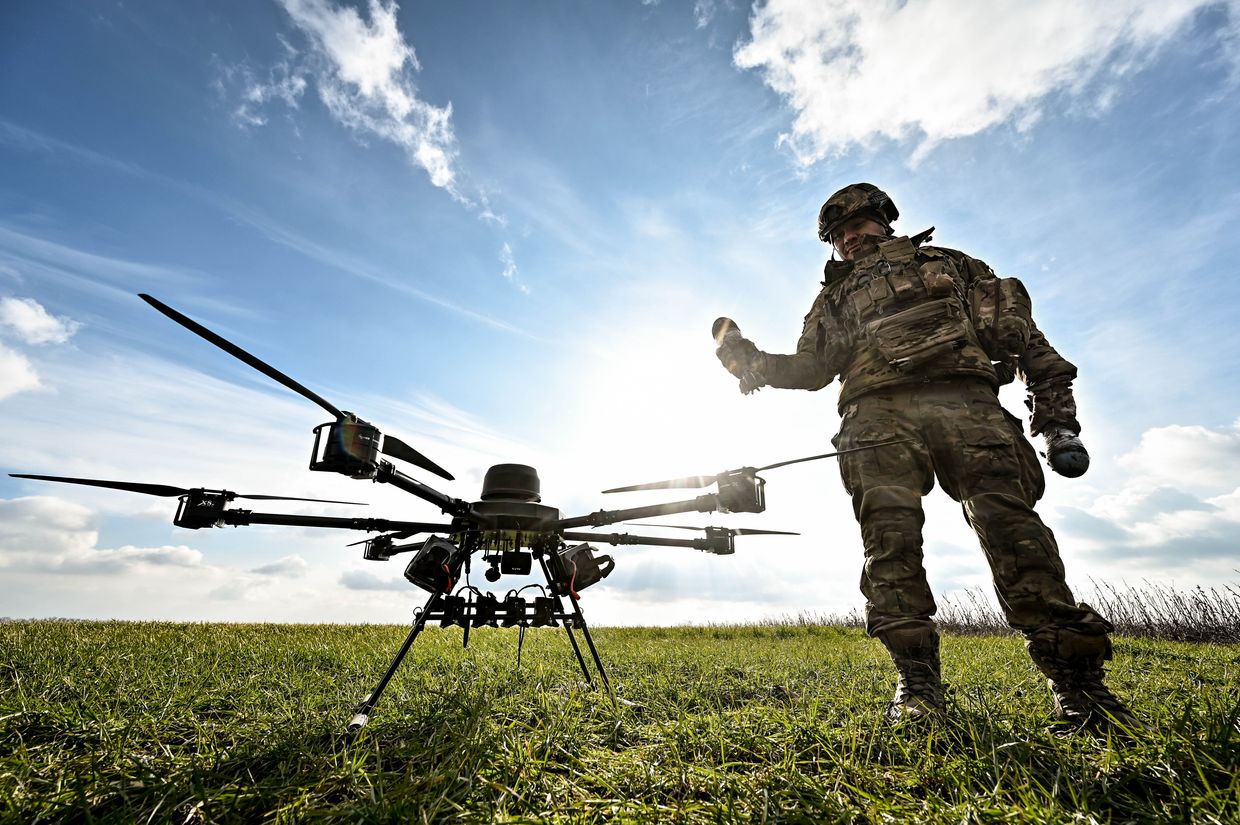Ukraine war latest: Russian weapons depot storing North Korean shells, missiles set ablaze after drone attack, Kyiv says

Key developments on Oct. 9:
- Russian weapons depot storing North Korean shells, missiles set ablaze after drone attack, Ukraine's military reports
- Ramstein-format meeting postponed after Biden cancels foreign visits
- Battlefield situation calls for decisive action to end war in 2025, Zelensky says
- Two more IRIS-T anti-aircraft systems arrive in Ukraine
A Ukrainian drone strike set ablaze a Russian weapons depot storing North Korean ammunition in Bryansk Oblast, Ukraine’s General Staff reported on Oct. 9.
"According to available information, missiles and artillery weapons, including those that came from North Korea, as well as guided aerial bombs, were stored on the territory of the warehouse," it said in a post on Telegram.
"A significant number were located under the open sky."
The General Staff said the depot was the 67th Arsenal of Russia’s Main Missile and Artillery Directorate (GRAU), located near the city of Karachev.
Earlier on Oct. 9, the Telegram channel Astra said a warehouse in Bryansk Oblast had been attacked, and local residents reported air raid sirens in the early hours of the morning of Oct. 9.
Videos accompanying Astra’s post showed multiple, quick-fire explosions coming from the area of a large fire.
Russia’s Defense Ministry claimed on Oct. 9 that 47 Ukrainian drones had been shot down overnight, including 24 in Bryansk Oblast.
It did not report any damage or casualties.
Ramstein-format meeting postponed after Biden cancels foreign visits
The next summit of the Ukraine Defense Contact Group (UDCG) scheduled for Oct. 12 in Germany was postponed after U.S. President Joe Biden canceled his overseas travel to handle Hurricane Milton, AFP reported on Oct. 9, citing a statement by the Ramstein Air Base.
Biden was supposed to convene a first leader-level meeting of the Ramstein summit in Germany weeks ahead of the U.S. presidential election, where President Volodymyr Zelensky was expected to present his victory plan.
The U.S. president put off his visits to Germany and Angola in order to oversee the emergency response to Hurricane Milton, according to the White House's spokesperson.
No new date for the summit was announced.
"Announcements about future Ukraine Defense Contact Group meetings will be forthcoming," the statement read.
The Ukraine Defense Contact Group is the U.S.-led group consisting of over 50 countries, including all 32 NATO members, that convenes at the U.S. Ramstein Air Base in Germany. The last Ramstein meeting on Sept. 6 was the group's 24th gathering since its establishment in April 2022.
Zelensky already presented his five-point plan to Biden during his trip to the U.S. in late September. Ukraine's president also discussed it with presidential candidates Donald Trump and Kamala Harris, as well as members of Congress.
Battlefield situation calls for decisive action to end war in 2025, Zelensky says
The situation on the battlefield calls for decisive action to end Russia's full-scale war against Ukraine "no later than in 2025," President Volodymyr Zelensky said during his visit to Croatia on Oct. 9.
"In October, November and December we have a real chance to move things toward peace and lasting stability. The situation on the battlefield creates an opportunity to make this choice — the choice for decisive action to end the war no later than in 2025," Zelensky said.
Speaking at the "Ukraine - South East Europe" summit, he added that Kyiv is counting on the leadership of U.S. President Joe Biden as well as "strong and wise steps" from the U.K., France, Germany, and Italy "to bring security and peace to Europe."
Throughout 2024, Ukraine has faced a challenging situation in its defense of the front line, particularly in Donetsk Oblast, where Russia has consistently concentrated its offensive potential.
Zelensky's remarks come days after Ukrainian forces withdrew from Vuhledar, one of the key strongholds of Ukraine's defense of southern Donetsk Oblast. Russian forces have been also focusing their efforts against the towns of Pokrovsk and Toretsk, where outnumbered and outgunned Ukrainian soldiers are slowly losing ground under Russian pressure.
Kyiv has been working on the points of peace formula since July and is going to finish a document peace framework by November while preparing for the second peace summit, according to Zelensky.
Next to this, Ukraine developed a victory plan "that can bridge the gap between the current situation and the successful peace summit."
"When the plan is fully implemented, Russia will lose the ability to threaten Europe," Zelensky said.
2,300 Ukrainian soldiers being trained in France as part of new brigade
The French military is training and equipping Ukraine's Anne de Kyiv brigade in France, the first instance of a foreign country training a Ukrainian brigade on its territory, the French Embassy in Kyiv said on Oct. 9.
A total of 2,300 Ukrainian soldiers are being trained by the French Armed Forces in the northeastern Grand Est region, according to French President Emmanuel Macron.
Defense Minister Rustem Umerov and his French counterpart Sebastien Lecornu, along with French President Emmanuel Macron, are expected to meet with some of the 15,000 Ukrainian troops that Paris has trained since the full-scale Russian invasion.
"France is the first country to train a full-fledged Ukrainian brigade on its territory. This initiative is unparalleled in terms of the number of trained soldiers and the duration of the training," the statement read.
Under the new program, Ukrainian soldiers are being trained in France, as well as Poland. The training recreates real conditions of combat operations, involving French equipment that will be handed over to the Ukrainian military, according to the embassy.
The training includes armored battle using AMX10 RC wheeled tanks and Milan missiles, air defense using Mistral missiles, as well as the use of unmanned aerial vehicles, snipers, and Caesar artillery systems.
In June, Macron unveiled that Paris would provide Kyiv with an unspecified number of Mirage 2000-5 planes to boost its airpower. The first cohort of Ukrainian pilots have completed Alpha Jet training in France, the French Armed Forces announced on Sept. 20.
"The training of pilots is part of the ongoing transfer of AASM and SCALP air-to-ground weaponry," the embassy said.
Two more IRIS-T anti-aircraft systems arrive in Ukraine
Ukraine received two IRIS-T anti-aircraft systems from Berlin last week, German Major General Christian Freuding said in an interview with the news outlet RND published Oct. 9.
Germany ordered an additional 17 IRIS-T air defense systems for Ukraine, German Chancellor Olaf Scholz said on Sept. 4, on top of the seven other systems that have already been delivered.
Ukraine will receive two more by the end of the year, Freuding said.
By 2026, Ukraine should receive 24 IRIS-T systems from Germany — 12 of medium-range versions and 12 short-range — it was reported last month.
Ukraine has lobbied international partners for more air defense capabilities in the wake of intensifying Russian strikes targeting energy infrastructure.
Initially a hesitant partner, Berlin has become Ukraine's second-largest military donor after the U.S.
However, German Chancellor Olaf Scholz is still reluctant to supply some key capabilities, namely Taurus long-range missiles.


